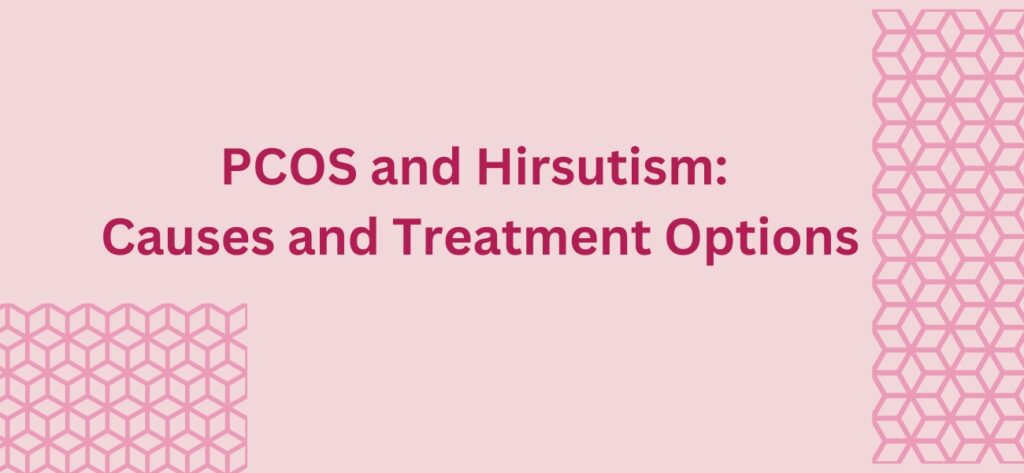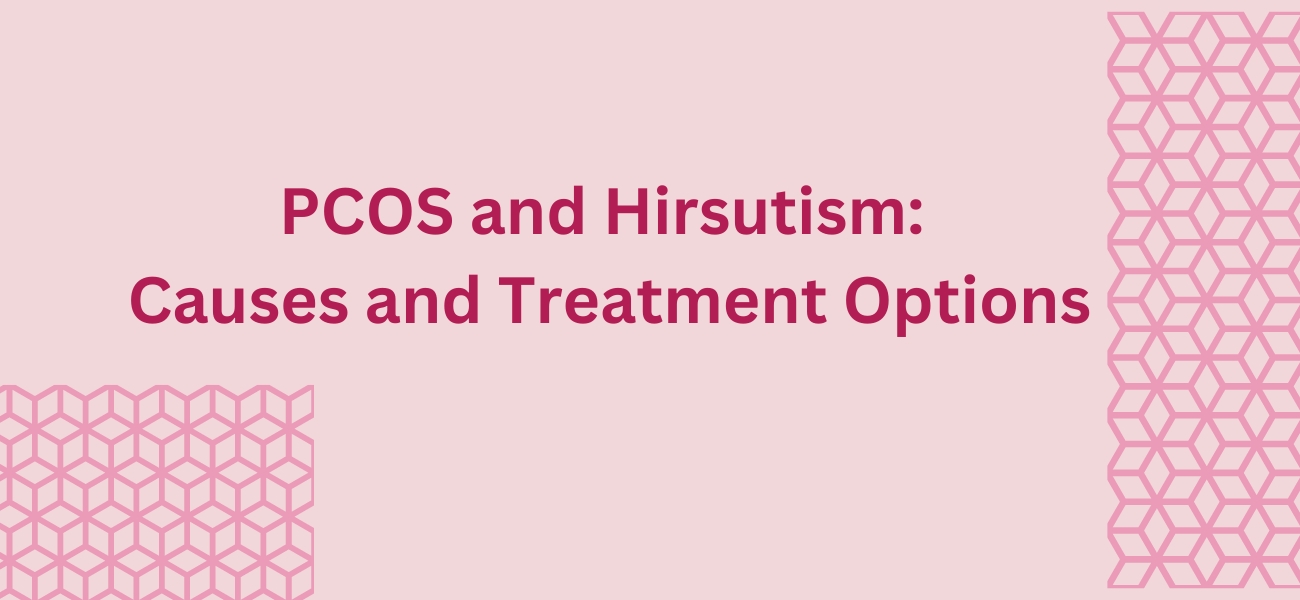Hormonal abnormalities, insulin resistance, and hereditary factors are a few of the potential causes of PCOS. The symptoms of PCOS and hirsutism can be managed with a variety of treatments even though the precise etiology is not yet entirely understood. These include dietary and exercise modifications, hormone and insulin level-regulating drugs, and hair removal aesthetic procedures.
The causes, risk factors, and possible treatments for PCOS and hirsutism will all be covered in this article. We will also explore ways for managing the emotional burden of these disorders and offer suggestions for preserving overall health and wellness.
What is PCOS and Hirsutism?
A surplus of androgens, which are male hormones generated in modest amounts by women, is what leads to PCOS, which is a condition marked by hormonal abnormalities in the body. These abnormalities could make it harder for the ovaries to ovulate frequently. Ovarian cysts, a sign of PCOS, could then develop as a result of this.
The prevalence of hirsutism, which can negatively affect a woman’s self-esteem and quality of life, is what sets PCOS apart from other conditions. It might be brought on by an overabundance of androgens, which encourage hair growth in regions typically linked to the formation of male-pattern hair. Although it isn’t always a PCOS symptom, it is one of the most prevalent and frequently a crucial element in the diagnosis.
Causes of PCOS and Hirsutism
- Insulin resistance: The hormone insulin regulates blood sugar levels in the body. Some PCOS patients develop insulin resistance, which requires them to produce more insulin in order to keep their blood sugar levels within normal range. Thus, androgen production could increase and lead to hirsutism.
- hormonal imbalances: Women with PCOS have higher levels of androgens, or male hormones. Hirsutism, acne, and other PCOS symptoms could come from this. Women with Pcos powder may also have irregularities in the hormones luteinizing hormone (LH) and follicle-stimulating hormone (FSH), which can interfere with ovulation and menstrual periods.
- Genetics: Women who have a family history of PCOS or hirsutism are more prone to develop these diseases.
- Inflammation: Insulin resistance arises from inflammation, which can cause PCOS and hirsutism. Additionally, inflammation disturbs the body’s hormonal equilibrium.
- Environmental factors: Exposure to some chemicals, such as endocrine-disrupting chemicals (EDCs), can throw off the body’s hormone balance and cause PCOS and hirsutism.
- Obesity: PCOS and hirsutism are more likely to develop in fat or overweight women. This is because having too much body fat may increase your insulin sensitivity, which might result in hormonal abnormalities.


Treatment Options for PCOS and Hirsutism:
- Modifying Your Lifestyle: The symptoms can be managed with the help of lifestyle changes like consistent exercise, weight loss, and a wholesome diet. Better menstrual cycles and reduced hair growth may be the result of decreased insulin resistance and hormonal imbalances. It can also be helpful to lose weight and exercise.
- Medication: Drugs like birth control pills, anti-androgens, and insulin sensitizers are widely used to treat PCOS and hirsutism symptoms. Birth control pills can regulate menstrual cycles and lower androgen levels, but anti-androgens can block the effects of androgens and slow hair development. One insulin-sensitizing medication that can increase insulin resistance and decrease testosterone levels is metformin.
- Techniques for Removing Unwanted Hair: Hair removal methods including shaving, waxing, and laser hair removal can help regulate the growth of extra hair brought on by hirsutism. These are temporary fixes that might have to be used repeatedly.
- PCOS and hirsutism symptoms can be treated with hormone therapy, such as estrogen and progesterone replacement therapy. Hormone therapy makes it possible to regulate menstruation, lower testosterone levels, and improve fertility.
- Surgery: Women with severe pcos supplements who do not react to current treatments may be candidates for ovarian drilling or ovarian removal surgery. These techniques reduce androgen levels, which can boost fertility.
- Herbal teas, spearmint, cinnamon, and omega-3 fatty acids are a few examples of natural remedies and supplements that may assist in managing the symptoms of PCOS and hirsutism. Due to the possibility of minor adverse effects, these treatments should only be taken under a healthcare professional’s guidance.
- Psychological Support: It can negatively affect a woman’s emotional health and sense of self. With the use of psychological support like counseling, support groups, and stress reduction techniques, women can manage the emotional repercussions of these conditions.
Managing Symptoms of PCOS and Hirsutism:
- Self-Care Techniques: Self-care techniques, such as obtaining adequate sleep, maintaining excellent cleanliness, and taking part in enjoyable and relaxing activities, can help people manage stress and enhance their general well-being. Exercise, yoga, meditation, and other stress-relieving practices can all assist in managing hirsutism and PCOS symptoms.
- Support Groups: Becoming a member of a support group for female PCOS and hirsutism sufferers can give you a sense of belonging and comprehension. It can be energizing and inspiring to be able to talk about experiences, ask questions, and get support from others who are going through the same circumstances.
- Management of Stress: Stress can make PCOS and hirsutism symptoms worse. Stress management methods like meditation, therapy, or support groups can help lessen symptoms and enhance general wellbeing.
- Exercise and Diet: Keeping up a good diet and working out frequently can help you control the signs of hirsutism. A diet rich in fruits, vegetables, whole grains, and lean protein can assist in controlling insulin levels and lowering testosterone synthesis.
- Managing Emotional Impact: Coping with the emotional effects of PCOS & hirsutism can be difficult. It’s critical to recognise and give credence to any dissatisfaction, grief, or fear that may surface.
Conclusion
Significant treatment options for PCOS and hirsutism symptoms include self-care practices, support groups, stress management, nutrition and exercise, limiting emotional effect, skin care, and regular medical checkups. By incorporating these strategies into their daily lives, women who suffer from PCOS and hirsutism can improve their general welfare and quality of life.
It’s essential to work closely with a healthcare practitioner who specializes in these conditions to ensure that the optimal management and treatment plans are in place. With the appropriate treatment and management, women with PCOS and hirsutism can live happy, healthy lives.



